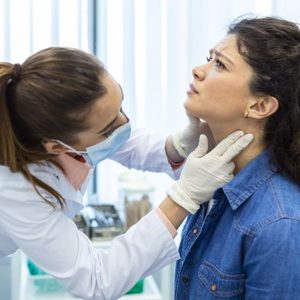The Importance Of Male Breast Cancer Screening

Breast cancer is commonly perceived as a disease that affects women, but men can also develop it. Although male breast cancer is rare, accounting for less than 1{570946603552e06ad44b43f7465dd07e0eb4365a5bf29be881b7986023721442} of all breast cancer cases, it is important to raise awareness about the need for early detection and regular screening. Many men may not realise that they are at risk, which often leads to delayed diagnosis and more advanced stages of the disease.
Explore the importance of breast cancer screening for men and the steps men can take to ensure early detection.
Why Men Need to Consider Breast Cancer Screening
While breast cancer in men is uncommon, it is not impossible. Men have a small amount of breast tissue, and breast cancer can develop there just as it can in women. The major issue is that many men do not consider breast cancer a possibility, which can lead to delayed medical attention when symptoms appear. By the time men are diagnosed, the cancer may have already spread to other parts of the body, making treatment more challenging.
Men, particularly those with certain risk factors, should be aware of their breast health and consider breast cancer screening. Although there are no standard screening guidelines for men as there are for women, high-risk individuals should discuss personalised screening plans with their healthcare providers.
Risk Factors for Male Breast Cancer
Men need to be aware of several risk factors that can increase their likelihood of developing breast cancer:
Age: The older you get, the higher the risk of breast cancer. Most cases are diagnosed in men over 60.
Family History: Men with close female relatives who have had breast cancer are at an increased risk, particularly if they carry BRCA1 or BRCA2 gene mutations.
Genetic Mutations: Men who carry mutations in the BRCA1 or BRCA2 genes are more likely to develop breast cancer. These genetic mutations significantly raise the risk for both breast and prostate cancers in men.
Radiation Exposure: Men who have undergone radiation therapy, particularly to the chest, have a higher risk of developing breast cancer.
Hormonal Imbalances: Elevated oestrogen levels, due to conditions such as Klinefelter syndrome, obesity, or liver disease, can increase the risk of breast cancer in men.
Lifestyle Factors: Alcohol consumption, smoking, and obesity are associated with an increased risk of male breast cancer.
LEARN MORE: Can Soy Products Lead to Breast Cancer?
Screening Methods for Male Breast Cancer
Breast cancer screening for men is not as routine as it is for women, but it can be recommended for men at high risk. Some screening options include:
Clinical Breast Exams: A healthcare professional can check for lumps or other abnormalities in the breast tissue. Men with a family history of breast cancer or other risk factors should consider having regular clinical exams.
Mammograms: Although rare, mammograms can be used for men, particularly those with a strong family history of breast cancer or known genetic mutations. Mammograms may help detect abnormalities that are not yet palpable.
Genetic Testing: Men with a family history of breast cancer or those diagnosed with prostate cancer may benefit from genetic testing to determine whether they carry BRCA1 or BRCA2 mutations. A positive result could lead to more frequent monitoring and screening.
Ultrasound and MRI: In some cases, additional imaging techniques like ultrasound or MRI may be used to provide more detailed views of the breast tissue. This can be helpful for men with dense breast tissue or inconclusive mammogram results.
Raising Awareness of Male Breast Cancer Screening
Breast cancer screening is not something that men often think about, but it should be on the radar, especially for those with increased risk factors. While male breast cancer is rare, it can be just as serious as it is for women. Men with a family history of breast cancer, genetic mutations, or other risk factors should talk to their healthcare providers about personalised breast cancer screening strategies.
Early detection is key, as it can significantly improve treatment outcomes. By understanding the risk factors, symptoms, and screening options available, men can take proactive steps to manage their breast health and detect any potential issues early. Breast cancer screening may not be routine for men, but for those at risk, it can be lifesaving.
Worried that you or someone you love might have cancer? Make an appointment at SMG Women’s Health today.






